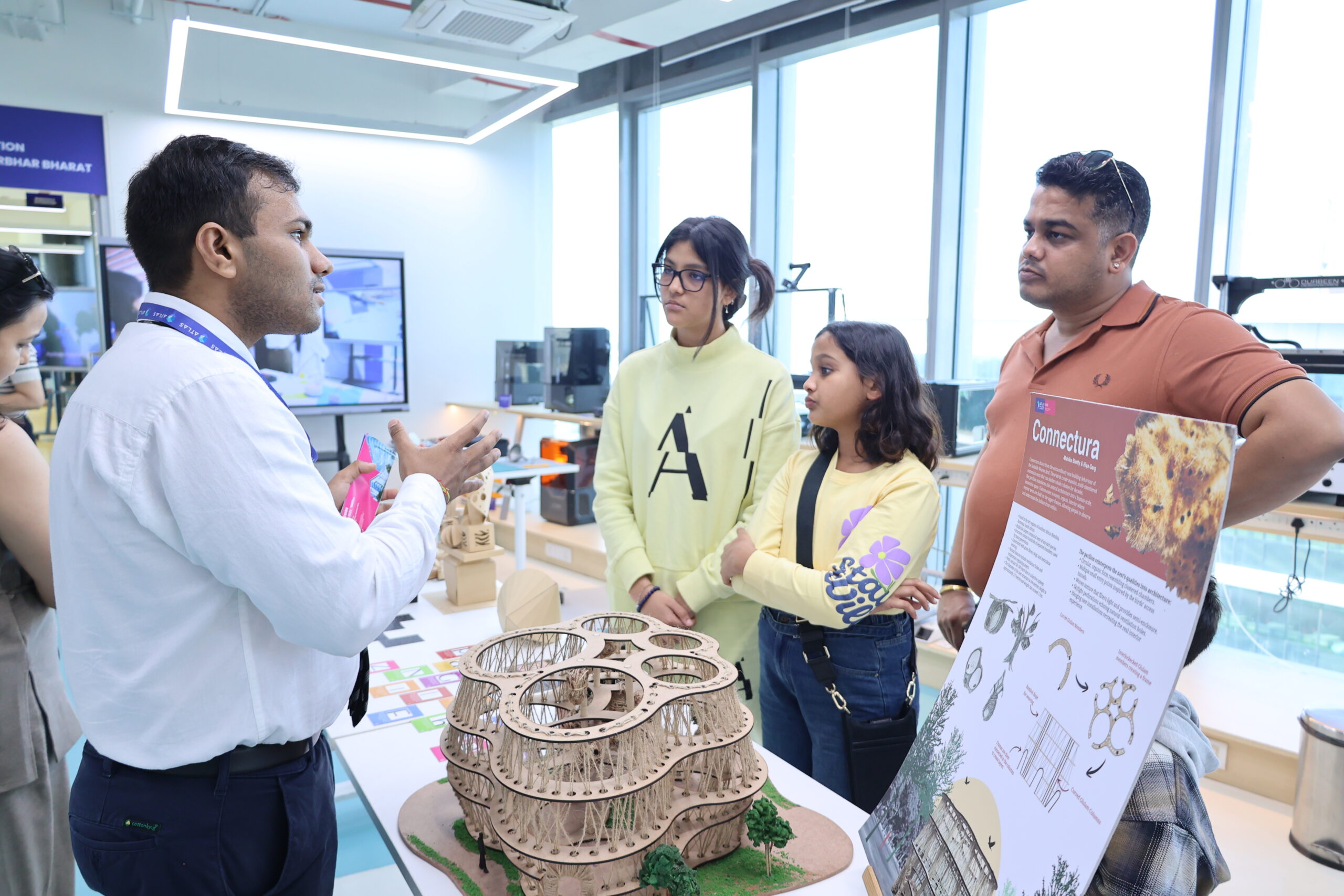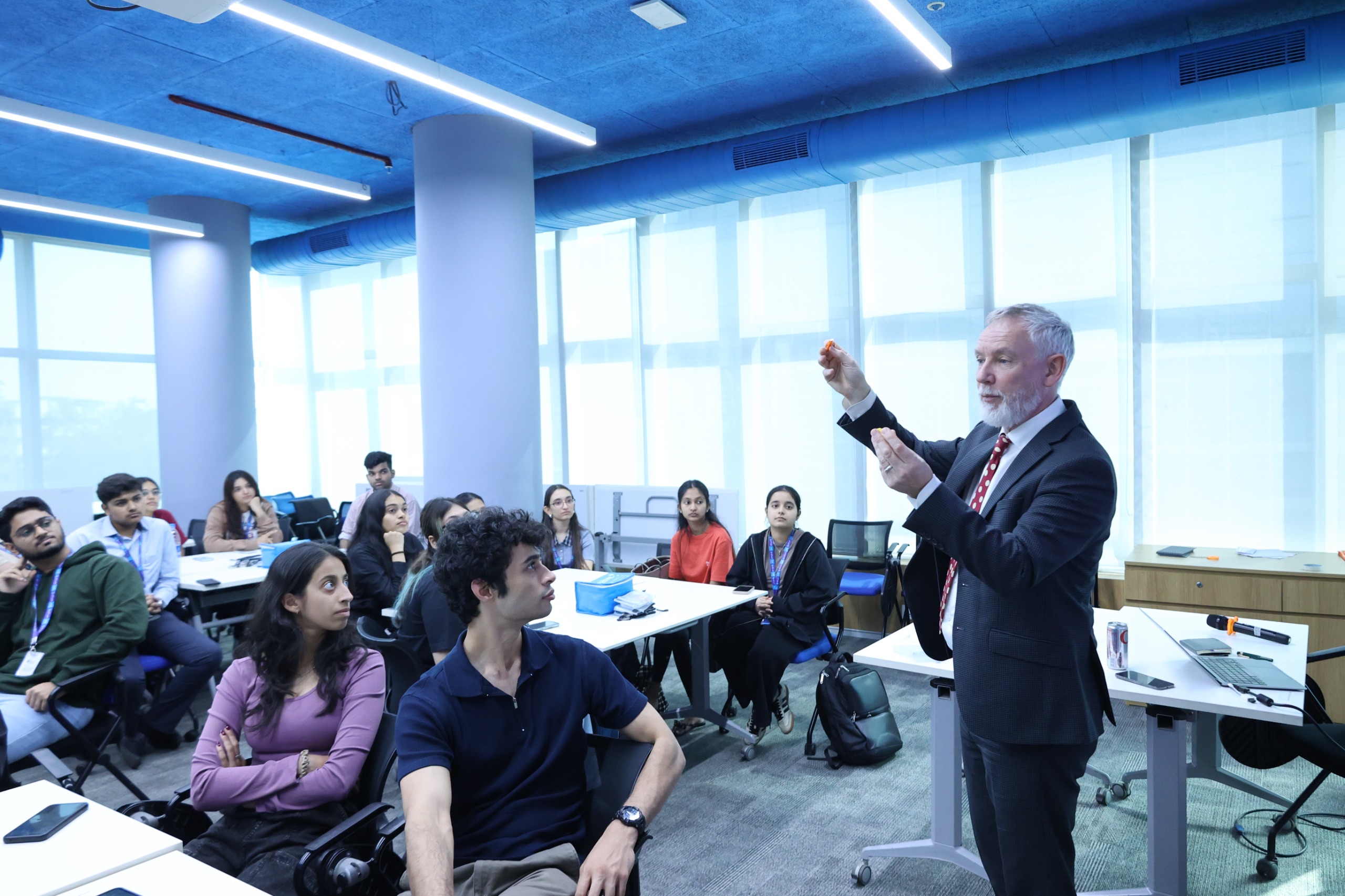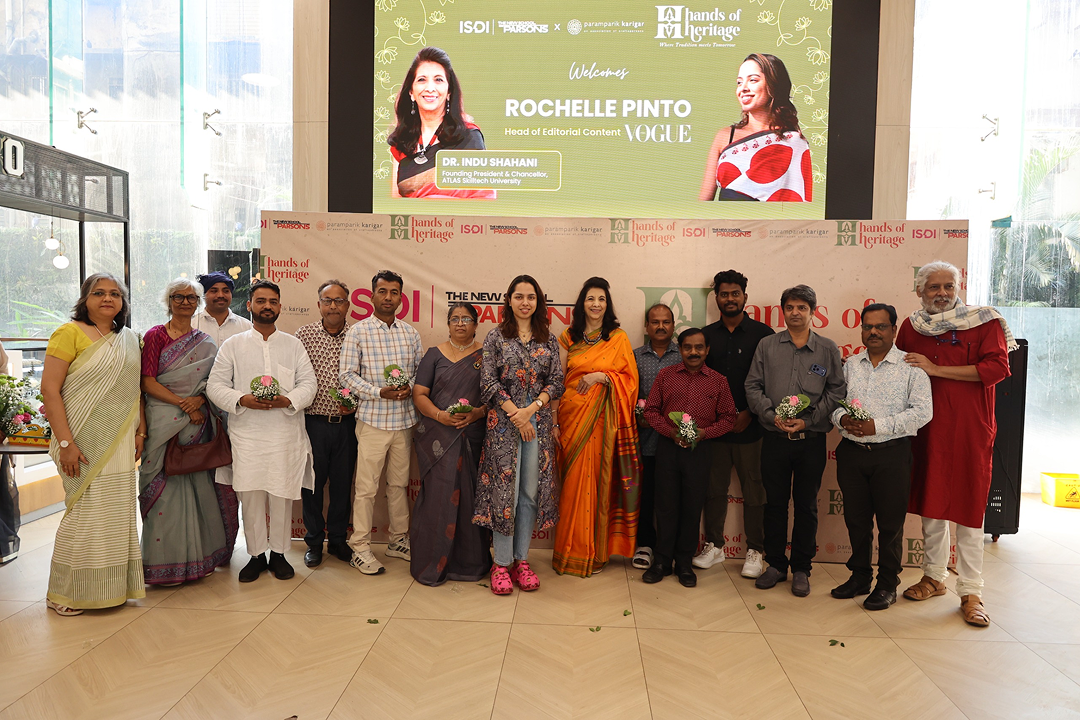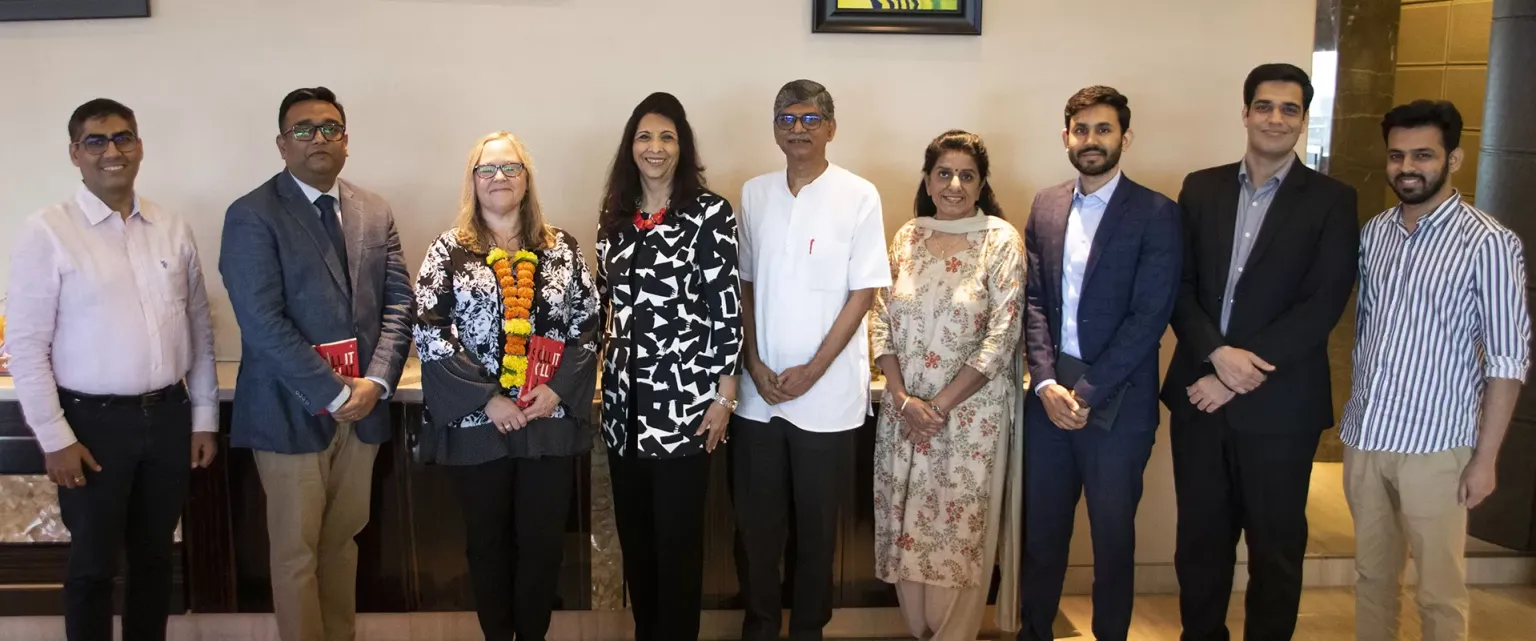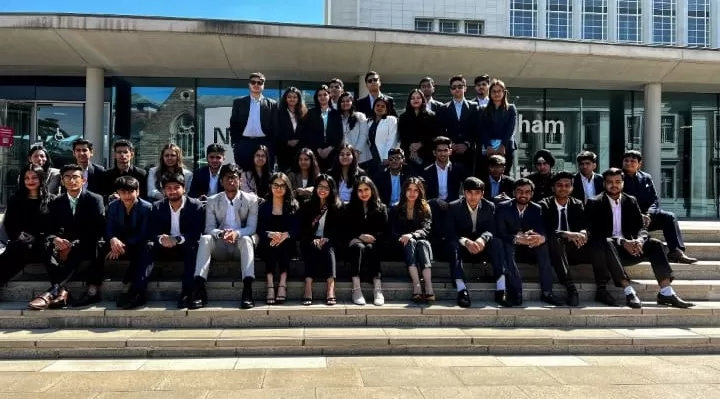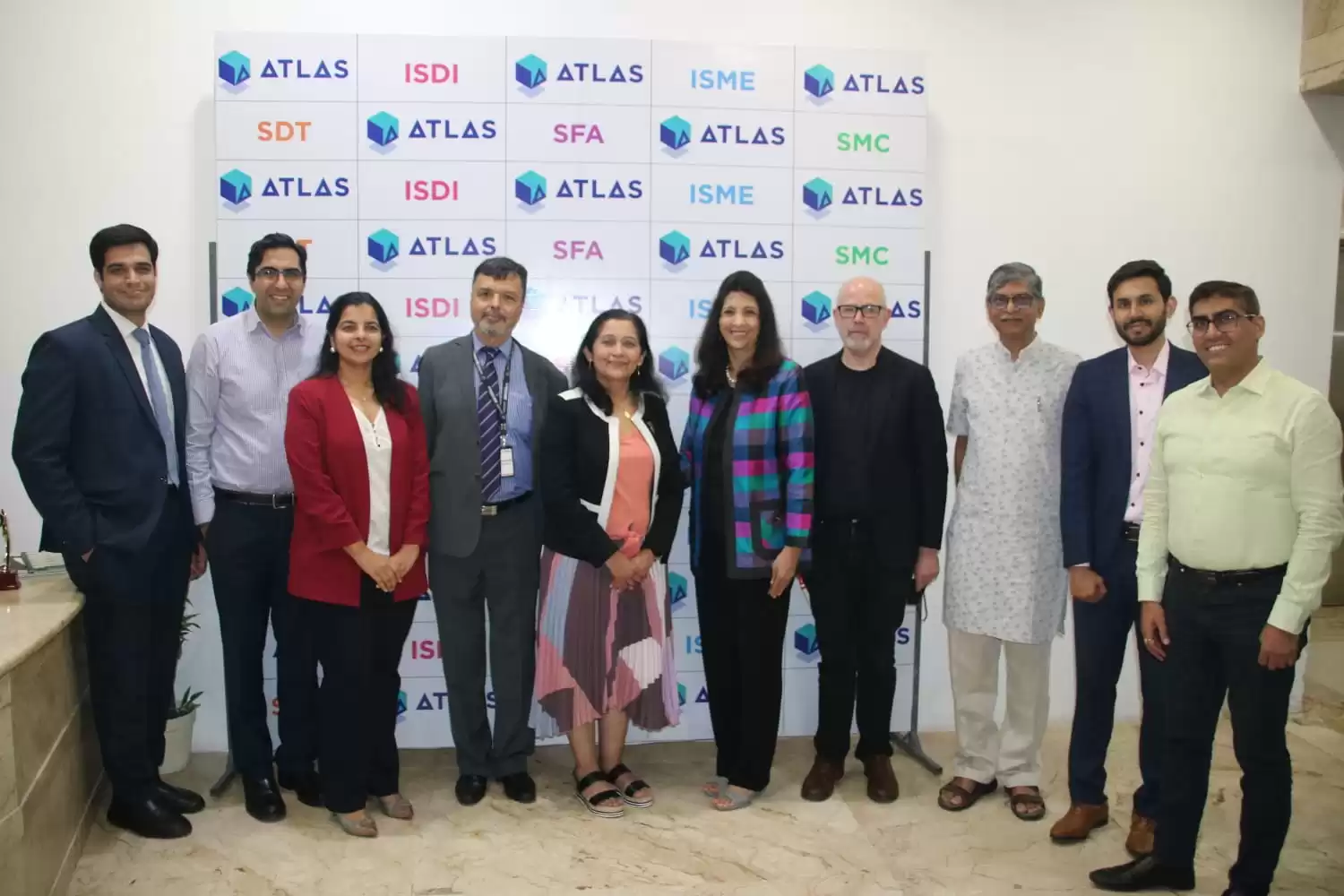Aarohan Day 6: A session on Leadership, Agility and Resilience

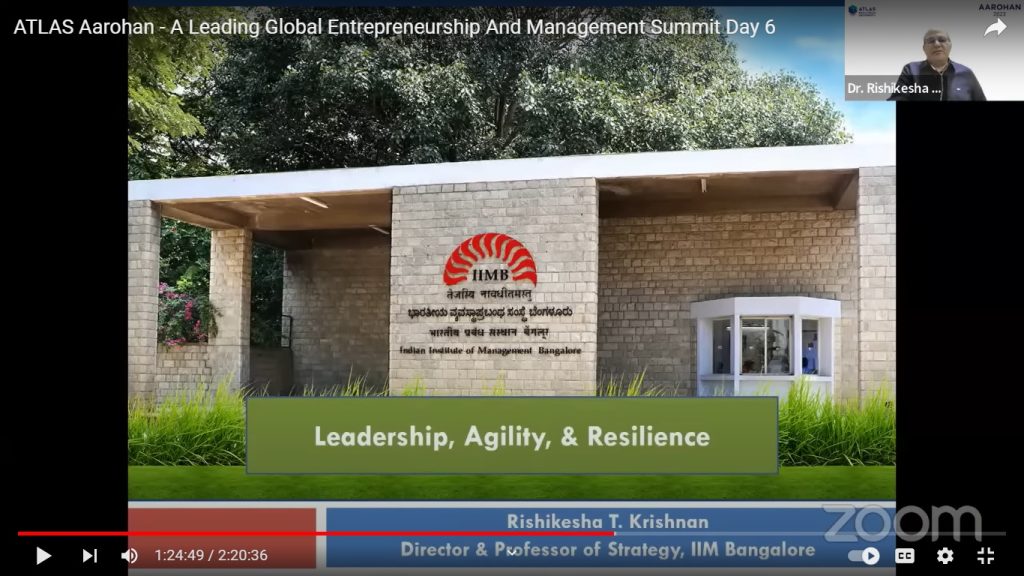
Are you prepared for a turbulent world? Dr. Rishikesha Krishnan, Director & Professor of Strategy, IIM Bangalore shared some valuable insights during his session on Leadership, Agility and Resilience at Aarohan, a global entrepreneurship and management summit presented by ATLAS SkillTech University. Dr. Krishnan discussed the need for leaders to prepare for a turbulent world and identified several qualities and skills that are essential for managing risks and grasping opportunities in an increasingly unpredictable world.
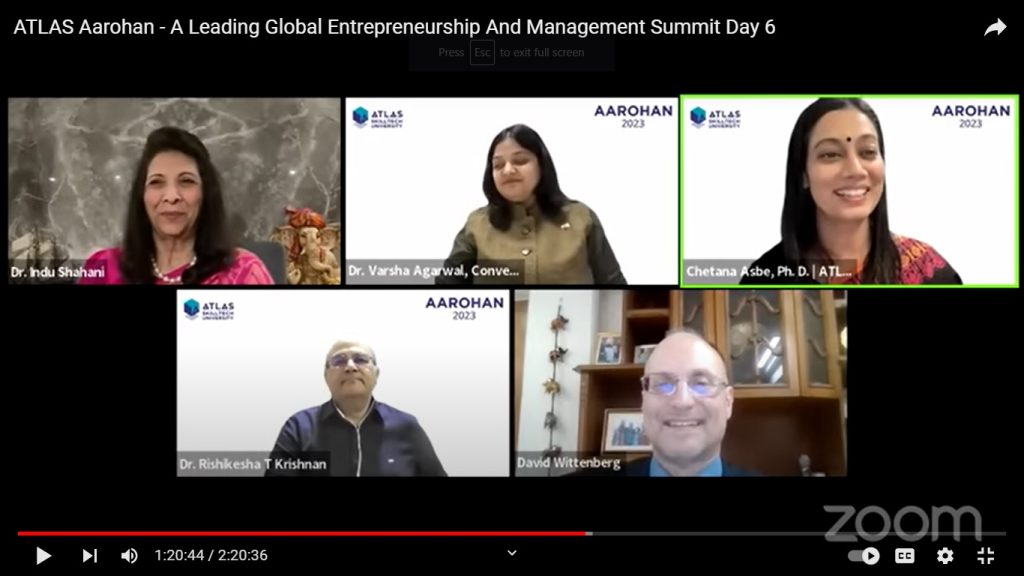
How do we prepare leaders for a turbulent world?
Dr. Krishnan began by highlighting the fact that we live in a world of constant disruption and that black swan events such as the 9/11 terrorist attacks and the 2007-08 financial crisis have made it clear that unexpected events can have a significant impact on individuals, organisations and society as a whole. With the COVID-19 pandemic, the world faced an unprecedented challenge that caught most of us off-guard. Against this backdrop, Dr. Krishnan emphasised the importance of developing a set of skills and qualities that can help leaders navigate the uncertainty and complexity of the world we live in.
Avoid decision making biases
One of the key takeaways from the session was the importance of avoiding decision-making biases. Human beings tend to give more weight to data that support their own hypothesis or model and reject data that contradicts it. In a turbulent world, this can lead to significant mistakes. Dr. Krishnan emphasised the need to combat overconfidence and excessive optimism, and to encourage free and open debate as a way of avoiding decision-making biases.
Practise the Scenario Planning
Another important skill that leaders need to develop is scenario planning. While no one can predict the future, building alternate scenarios can help organisations prepare for a range of possibilities and respond effectively to changing circumstances. Dr. Krishnan cited the example of Shell, which has demonstrated the utility of scenario planning in managing risks and grasping opportunities.
Better identification, assessment of risks
Dr. Krishnan also emphasised the need for leaders to better identify and assess risks by continuously interacting with a wide range of stakeholders and scanning for weak signals.
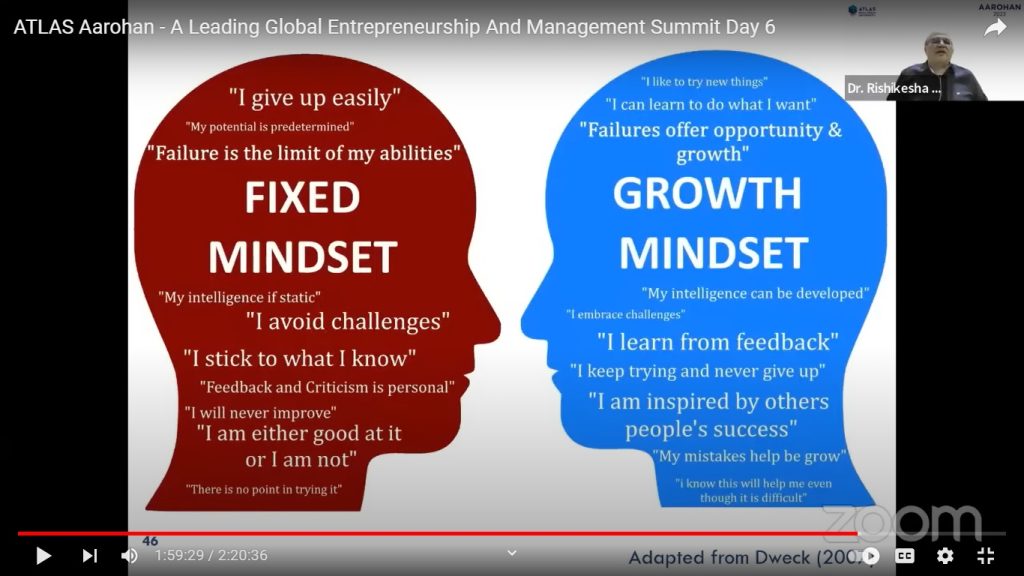
Business continuity and contingency plan
He also highlighted the importance of having a business continuity and contingency plan, an understanding of what it takes to ensure business continuity with appropriate contingency plans and better risk analysis of supply chains.
Entrepreneurial mindset + Lean startup philosophy
Managers need an entrepreneurial mindset that continuously scans the environment for new opportunities, testing and pivoting when assumptions no longer hold.
Understanding and appreciating technology
In an increasingly digital world, leaders need to understand and appreciate technology and the opportunities it presents. Many of the new opportunities are centered on data and digital and businesses need to embrace new technologies and approaches to stay relevant.
Digital Transformation- Challenges for Indian companies:
- Integrate strategy with clear transformation goals
- Leadership commitment: CEO to middle management
- Deploying high caliber talent
- Agile governance mindset to drive broader adaptation
- Effective monitoring of progress to achieve outcomes
- Business-led modular technology and data platform
To build strong cultural roots for a digital transformation, reframe the vision around radical impact and visibly promote new values and practices.
Collaboration
Collaboration has also become more important, with large companies reaching out to startups for tech and nimbleness and startups seeking the support and market reach of larger companies.
When the environment is too complex for top-down leadership to work, shared consciousness along with empowered execution is the solution to it. Hence, everyone should have a holistic and shared understanding of the organisation’s work.
Agility and resilience
Agility and resilience are also critical, with organisations needing a combination of both to prepare for changing conditions, restore their vitality after traumatic setbacks, and become even more effective as a result of the experience.
Rent less course-correction, stability and right-sized teamwork are 3 key inputs to agility.
Challenges that Indian companies face in becoming more agile
Dr. Krishnan also discussed the challenges that Indian companies face in becoming more agile, including the tendency to convert all decisions into a single-door decision and the difficulty in differentiating between strategic and tactical decisions. However, he emphasised that organisational agility is essential for overall competitive success and that effective monitoring of progress is necessary to achieve outcomes.
Stability is seen as a potential important condition for organisational agility and resilience. It provides a secure foundation that helps people stay focused on performance during disruptive change, rather than being worried and distracted about what may happen.
Who is an adaptable leader?
- Adaptable leader not only reacts to a crisis or pressure situation but also finds the lessons in the situation and continually coaching and encouraging individuals and groups to do the same.
- Acknowledges that you may not have all the answers and being willing to ask a lot of questions.
- Tends to have a system mindset, looks for patterns and connections and so are more likely to see opportunities where others see problems.
- Sets a direction without being entirely clear about the destination.
- Takes advantage of pulse surveys and other mechanisms for real time feedback on changes to operations, staffing, external communication or other business activities.
- Preserves employees’ energy by emphasizing well-being versus pushing 24/7 performance and by serving as role models for employees under pressure.
Adaptable leaders set the tone of resilience
The world is a turbulent place, and the best way to navigate it is to be agile, resilient, and proactive. By embracing new technologies, building strong relationships, and practicing scenario planning, businesses can stay ahead of the curve and thrive in an uncertain world.
Dr. Krishnan’s session on Leadership, Agility, and Resilience provided valuable insights into the skills and qualities that leaders need to develop to navigate the complex and unpredictable world we live in. His emphasis on scenario planning, risk assessment, and the development of an entrepreneurial mindset, along with agility and resilience, provides a roadmap for leaders to prepare for the challenges of the future.
About Dr. Rishikesha Krishnan

Dr. Rishikesha Krishnan is the Director & Professor of Strategy at IIM Bangalore. He was earlier the Director at the IIM Indore. He held the Jamuna Raghavan Chair in Entrepreneurship at IIMB from 2007 to 2010.
He was educated at IIT Kanpur, Stanford University and IIM Ahmedabad. His main areas of interest are strategy and innovation. He has been listed in the Thinkers50 India list of most influential management thinkers from India.
Apart from academic publications, he has written two books: 8 Steps to Innovation: Going from Jugaad to Excellence (co-authored with Vinay Dabholkar) which won the Best Book Award for 2013-14 from the Indian Society for Training & Development and From Jugaad to Systematic Innovation: The Challenge for India.
He has extensive corporate board and advisory experience, and has served on several committees set up by the Government of India and prominent industry associations related to innovation in India.
He was a member of the expert committee set up by the Government of India in 2017-18 under the chairmanship of Justice BN Srikrishna to propose a data protection framework for India.
He co-founded one start-up and was the CEO of another. He has been on the jury of the Economic Times start-up awards. He is currently on the advisory board of YourNest Investment Advisors.

